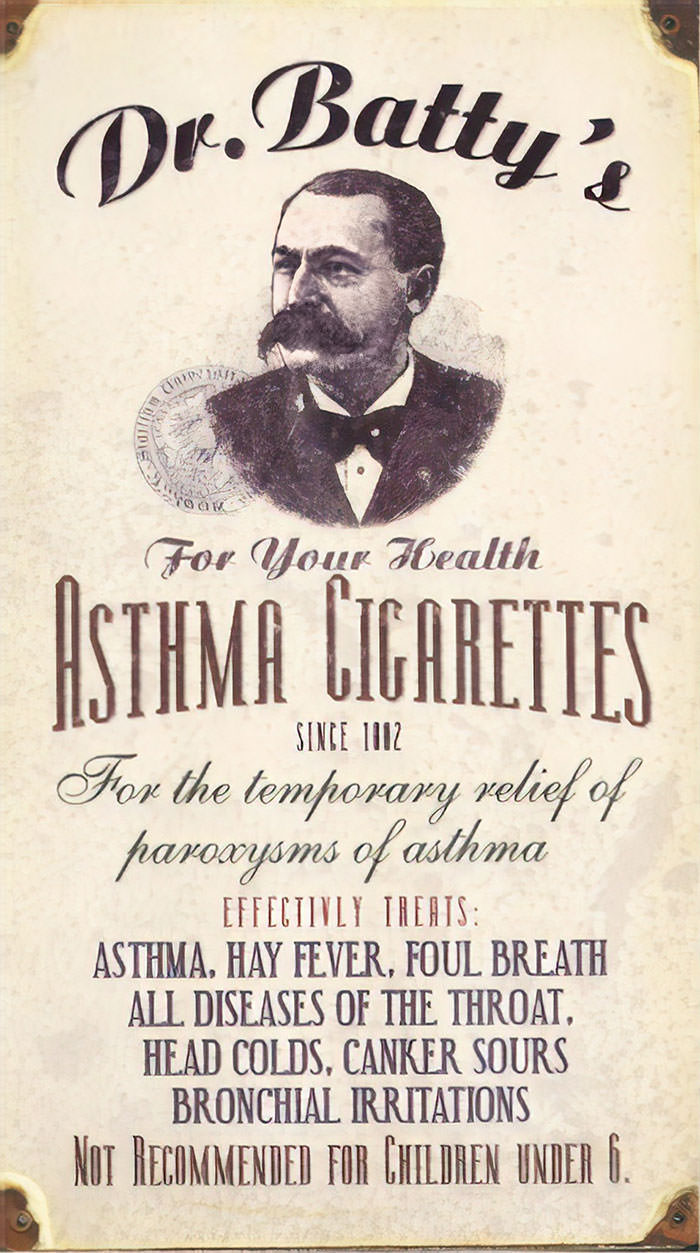
In the late 19th and early 20th century, smoking was considered a treatment for various ailments, including asthma. At that time, the harmful effects of nicotine were not yet fully understood, and smoking was even promoted for its supposed health benefits. Doctors believed that inhaling tobacco smoke could help open up the airways and ease respiratory issues. Cigarettes were marketed as “asthma cigarettes” and were readily available at pharmacies, with some even claiming to be specially formulated for asthmatics.
During this era, smoking was also thought to alleviate symptoms of other respiratory issues, such as bronchitis and coughs. Tobacco smoke was even recommended as a disinfectant to purify the air in hospital wards and sick rooms. The tobacco industry played a significant role in promoting these beliefs, using advertising campaigns that featured doctors and other medical professionals endorsing smoking for health reasons. It wasn’t until later in the 20th century that the dangerous effects of smoking on health became widely recognized, and the practice of using cigarettes as a medical treatment was eventually abandoned.


